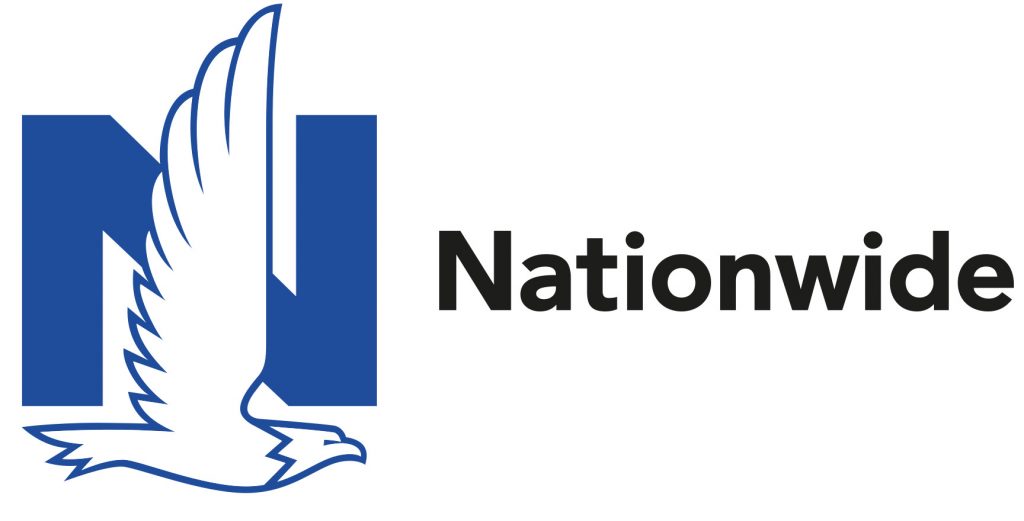Does Nationwide Offer Homeowners Insurance
If you’re a homeowner, you might be thinking about buying a homeowners insurance policy. After all, you want to protect yourself, your loved ones, your home, and your treasured possessions. Making the choice to buy homeowners insurance might be easy, but finding an insurance provider that matches all of your coverage requirements at an affordable rate can seem intimidating or even impossible. We’ve done some of the hard work for you by sifting through the huge amount of available information on different providers. On this page, we’ll introduce Nationwide homeowners insurance, their coverage offerings (and what they don’t cover!), pricing, discounts, claims procedures, cancellation policy, and how to get a quote. We’ll also compare them to some of their top competitors. Homeowners insurance typically provides coverage for the structures of your home, your personal possessions, your liability, and additional living expenses. If you experience covered losses due to fires, theft, vandalism, and more, you can rest easy knowing you have homeowners insurance. We want to help you to get the best possible homeowners insurance quote for your needs. Keep reading to discover if Nationwide is the right insurance provider for you.

Nationwide Homeowners Insurance Review and Costs
Let’s start with a brief overview of Nationwide and its reputation. Nationwide was founded almost 100 years ago in Ohio and is one of the top 10 writers of property and casualty insurance in the United States. They are well-known for their slogan and jingle, “Nationwide is on your side”. When it comes to ratings, JD Power gave Nationwide homeowners insurance a score of 3 out of 5, the average, on five key indicators of customer satisfaction: interaction, policy offerings, price, billing process and policy information, and claims. The Better Business Bureau (BBB) gave Nationwide an A+ for customer interaction. AM Best also gave Nationwide an A+ for superior financial stability. The NAIC gave Nationwide an average rating, meaning they are on par with the average insurance company for the number of customer complaints they receive. A homeowners insurance policy will cost you $X.XX per year on average. Note that your rate can vary drastically based on factors like your location, credit score, claims history, deductible, and the value of your possessions, among many more. Next, we’ll take a look at what exactly Nationwide covers in their home insurance policies.
| Nationwide Homeowners Insurance High-Level Review | By the Numbers |
|---|---|
| BBB rating for Nationwide Homeowners Insurance | A+ |
| Nationwide Renters Insurance JD Power Rating | 3/5 |
| Avg. Cost for Nationwide Homeowners Insurance Yearly | $1,151.20 |
| Avg. Cost for Nationwide Homeowners Insurance Per Month | $95.93 |
Nationwide Howeowners Insurance Coverage
Basic Nationwide homeowners insurance policies cover the standard dwelling, contents, liability, and loss of use coverage. Your home’s structure, built-in appliances, and wall-to-wall carpet are protected from covered losses, as are your belongings. This includes ordinance insurance, which could help pay to rebuild your older home to current building codes after a covered loss. Detached structures like sheds and fences are also covered under the basic policy. Personal liability covers you if someone or something (not your property) is damaged by accident in your home. This includes medical payments for injuries others have sustained on your property. Loss of use helps pay for additional living expenses, such as hotel bills, if your home becomes uninhabitable. These are all fairly standard coverages, but Nationwide homeowners insurance also provides credit card coverage if there are unauthorized charges on your debit or credit card. Optional features include better roof replacement and brand-new belongings, which immediately provides actual cash value for your items and pays the difference after you’ve bought a brand-new replacement. You can get additional coverage for identity theft, high-value items, and replacement cost plus, which gives you up to an extra 20% of your property coverage limit if your home needs to be rebuilt.
The vast majority of homeowners policies do not cover flood damage. Nationwide home insurance does not cover flooding as parts of its standard policy either, but you can buy separate flood insurance from their agents. These agents offer you flood insurance from the National Flood Insurance Program (NFIP). These policies can cover damage to flooring, heating and cooling systems, your belongings, and may also cover some cleanup expenses. The cost of flood insurance will vary based on your area and the property you are protecting, but averages at about $700 a year. Mold coverage depends on the source of the mold. If the mold is a result of something like a broken appliance, Nationwide says it is likely covered under their homeowners insurance. However, the amount offered for cleaning up the mold is usually limited and if the source of the mold is flooding, there is no coverage provided. Note that Nationwide offers an add-on to your standard policy for water backup from sewers, drains, or sump pump overflows. Mold from these sources will only be covered if you purchase this optional expansion. You should always ask an agent about restrictions for water and mold damage.
How Much is Nationwide Homeowners Insurance Near You
The next big question is, “How much is homeowners insurance through Nationwide?”. Numerous factors go into deciding insurance rates; we can’t go over them all, but we have compiled a list of states for you to get an idea of the average cost in your area. The national average for Nationwide homeowners insurance is $X.XX per month. The most expensive state is Oklahoma, which costs $X.XX per month on average. Conversely, Delaware is the cheapest state at a mere $X.XX per month.

Get a Nationwide Homeowners and Auto Insurance Discount
Luckily, there are plenty of ways to save on your Nationwide homeowners insurance. One of the biggest discounts you can find from any provider is the multi-policy discount. You can save on your premiums when you bundle auto and homeowners insurance with Nationwide. There are also different insurance combinations available. These bundling discounts are typically offered by the agent when you purchase a new policy. Nationwide also offers common discounts like a claims-free discount (if you have never filed a claim) and a protective device discount (for having safety devices like fire and burglar alarms). In a slight twist on the loyalty discount, Nationwide will give a discount to new members based on the number of years they were continuously insured with their previous provider. There are also discounts for living in a gated community, for getting your home renovated, if you have purchased your home in the last 12 months and based on the age and quality of your roof. Nationwide offers a free “On Your Side” review to members that involves speaking with an insurance professional to make sure you’re taking full advantage of available discounts and benefits, among other things.
Costs of Nationwide Homeowners Insurance Compared with Competitors
So how does Nationwide homeowners insurance compare to their competitors when it comes to pricing? Nationwide’s insurance tends toward the expensive side. Their priciest competitor for homeowners insurance is The Hartford, which costs an average of $X.XX more per month than Nationwide. On the other hand, AIG has much cheaper rates than Nationwide. On average, you’ll pay $X.XX less per month with AIG. Don’t forget that many factors will influence your policy quote and these averages may not be reflective of your rates. More than that, price is not the only consideration when it comes to choosing your ideal provider.
Reaching Out to Nationwide Homeowners Insurance
If you decide to go with Nationwide, you’ll need to know how to make a Nationwide homeowners insurance claim. Nationwide claims that they’ll do everything they can to make the process as quick, fair, and stress-free as possible. You can go online and choose your claim type to begin. If you’re a member, you can log into Nationwide account to have your policy details prefilled. You’ll need to start with basic information like your policy number, name, date of birth, and ZIP code. Always make sure to be ready with pertinent details such as what happened, when it happened, what was damaged, the value of damage items, and so on. A good idea is to inventory your belongings before you suffer a covered loss or event. That way, you’ll be prepared if you need to make a claim. Once you’ve filed, you can check the stats of your claim by logging into your account. You can also call to file a claim 24/7 by phone – there are separate lines available for the different types of insurance – or use Nationwide’s mobile app. If you need assistance, you can contact a local agent or even email Nationwide.
If you choose to go with Nationwide, you may eventually need to know how to cancel your Nationwide homeowners insurance. You may choose to cancel because you are selling your home, joining your partner’s insurance, you’ve found a better deal elsewhere, or you’re unhappy with Nationwide’s offerings and service. To cancel a Nationwide policy, you’ll have to contact your local agent (a tool on Nationwide’s website can help you find yours) or call if you don’t have an agent. Unfortunately, while you can manage and update your coverage online, you can’t cancel it online. The best time to cancel is at the end of a coverage period, but if you give Nationwide proper notice of cancellation you can likely avoid fees and be refunded the unused part of your premium if you cancel in the middle of your coverage. Nationwide warns that you must cancel your policy; you can’t simply stop paying your premiums as these will be considered late or missed payments. You should also get a written notice to confirm your cancellation and line up your new insurance before cancelling your old policy in order to avoid gaps in coverage.
Deciding on Whether Nationwide is Right for Your Home
There’s only one thing left to learn – how to get a Nationwide homeowners insurance quote. You can always call Nationwide or your local agent, but they also provide an online quote tool. To get started, you just need your name, ZIP code, and state. After that you’ll be asked for your address, sex, marital status, and contact information. Finally, you’ll be asked for property details, your home’s features, if there’s a mortgage, what security devices you have installed, and a few other details. Now you’ve got your quote – are you ready to buy homeowners insurance from Nationwide? We wouldn’t recommend it. It’s our suggestion that you should always shop around and get multiple quotes from different providers. Only by comparing quotes and coverage offerings can you be sure you’ve chosen the best insurance provider for your specific needs and budget. You may choose Nationwide as your ideal provider in the end. However, you’ll have more peace of mind knowing you but took the time to find out what else is available first. We hope we’ve helped you with the process of reviewing Nationwide’s homeowners insurance and getting an accurate and affordable quote.


